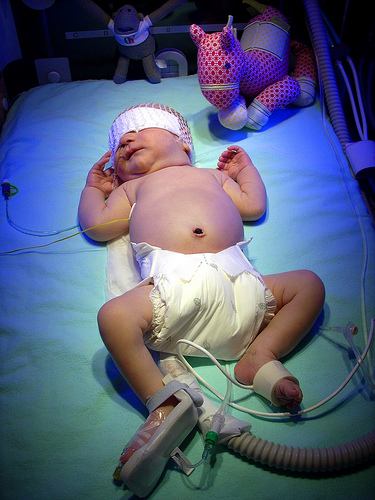Neonatology is one of the most challenging and most rewarding nursing specialties in a hospital setting. The Houston Chronicle reports that in states like California, Hawaii, and Massachusetts, neonatal nurses make over $80,000 a year, while in less lucrative states like Oklahoma and Iowa, they make just over $50,000. Although situations and salaries can differ based on location, most neonatal nurses provide pretty much the same services. It might sound wonderful witnessing births and experiencing the first few days of life for so many babies. But it can also be harrowing and stressful, just like any other nursing job – even more so when dealing with the tiniest and most innocent patients. Here’s what one of these professional nurses tackles in just 24 hours.

1. Attending Births
The number of deliveries per day can vary depending on the hospital, but it’s more than likely births are happening at every time of the day and night. A large hospital can welcome as many as 60 to 80 babies daily, which means neonatal nurses are never bored. Most of these births are normal, healthy infants who need routing care. Nurses can use heel sticks to test their blood, suction their nose and mouth, and give the baby important vitamins. These babies go to the Level 1 nursery, for infants who need the least amount of specialized care. Their vital signs and temperature are monitored, and the nurse will carry them to and from their mother once she’s rested up.
2. Caring for Infants and Mothers
The duties of neonatal nurses involve bathing, dressing, and changing babies, and even feeding them in cases where the mother is not yet able. In some hospitals, these nurses also provide postpartum care, taking the mother’s vital signs and making sure she has no complications after delivery. Nurses also answer the mother’s questions about infant care and help them learn how to breast or bottle feed their baby. New mothers often need to know about sleeping schedules and what to expect after they take their child home for the first time. Nurses can help schedule appointments and give parents access to resources that can help them.
3. Premature Babies
Arguably the most important work that neonatal nurses do involves premature and abnormal births. These babies are house in Level 2 and 3 nurseries, depending on whether they need short-term specialized care or whether they need long-term, critical medical attention. Nurses oversee x-rays and blood tests, and they deliver food and medication to premature babies in incubators who struggle to stay alive. Every day, nurses see babies who are born addicted to drugs, born with serious birth defects, or simply too tiny to even cry. The hardest part of their job may be facing that many of these babies will not survive. Delivering the news to anxious parents that their baby did not pull through is difficult, but the success stories that come from Level 3 nurseries are incredibly rewarding.
On a typical day, work for neonatal nurses starts at 6am, when they go over the progress charts for the most critical infants in their care. Like all nursing jobs, it’s fairly unpredictable. You can end up on call until well into the middle of the night, and most of the time you don’t know when a newborn patient can suddenly take a turn for the worse. But neonatology is one of the most important specialties a nurse can have, because you’re dealing with the most vulnerable babies in the crucial first hours and days of their lives. Even when facing tragedy, it’s worth it to hear healthy cries when you step into the nursery.
Author Brett Harris writes for some of the top colleges that offer online nursing programs. See the 2014 rankings here at www.topmtobsn.com to find the right one for you.





